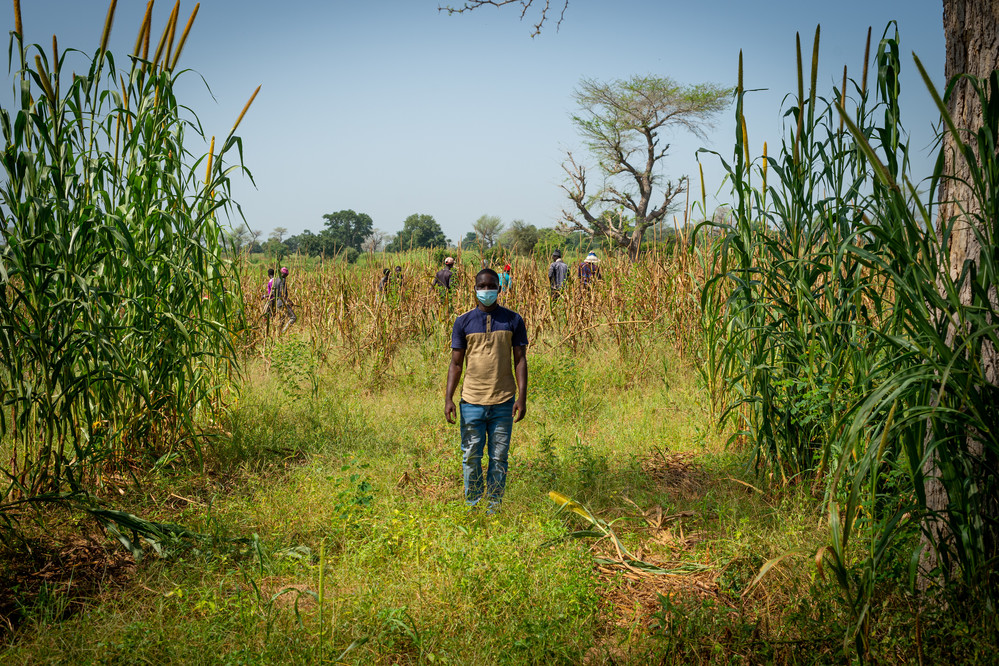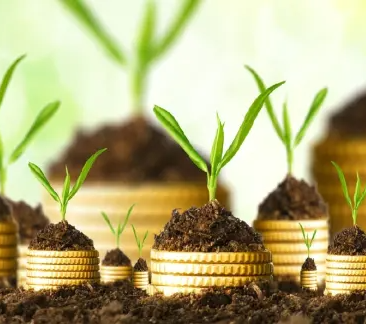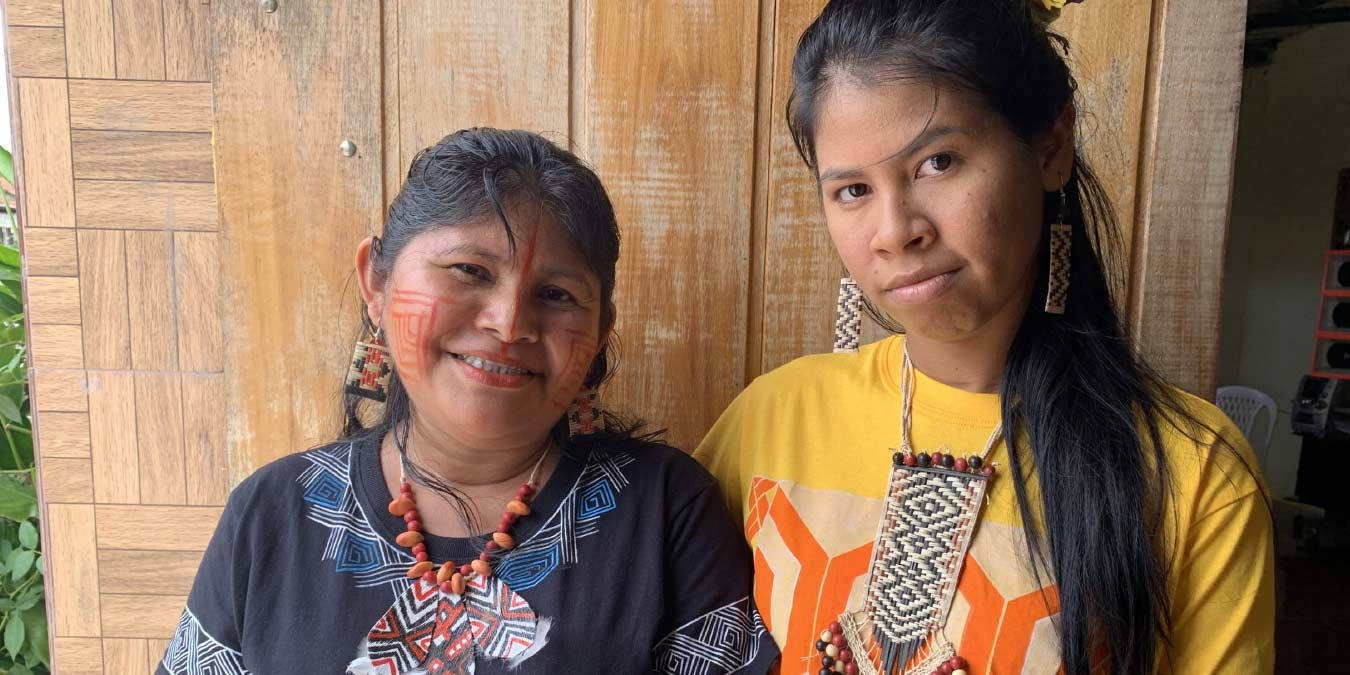
Photo credit: DIVER.SSA
If it’s the first Sunday of the month and you happen to be visiting Agrovila Pinhão Manso in the Brazilian city of Camaçari, you are likely to be greeted by a bustling market where local women sell the fruits and vegetables they grow. They sell delicacies made from mandioc flour, adding a generous sprinkle of dendê oil with practiced ease, while chatting with customers. The Agroecological Market Day — led by chef and entrepreneur Solange Borges — is indeed a special event, driving economic empowerment for Bahian women in Brazil.
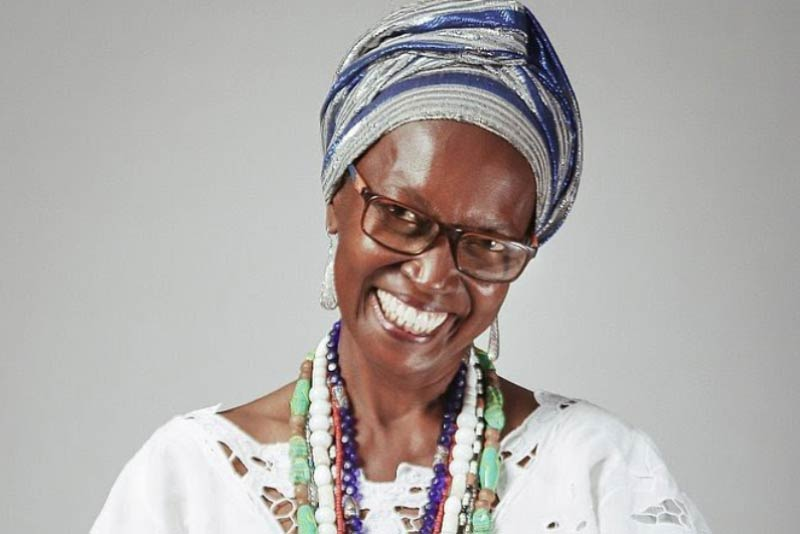
Photo credit: DIVER.SSA
It's been a long journey. In 2017, Borges launched the Culinária de Terreiro project to showcase the candomblé tradition while respecting local history and empowering women entrepreneurs. Last year, she opened the Flour House (Casa de Farinha), a small factory with new equipment to increase production and sales. It’s also a space for women to interact and generate income for microentrepreneurs working the land. Borges attributes this business venture to the acceleration program — Programa de Aceleração Itaú Mulher Empreendedora + DIVER.SSA — she was part of in 2021.
According to the Brazilian Micro and Small Business Support Service (Sebrae), Black female entrepreneurs in Brazil were the hard hit by the COVID-19 pandemic, which is why the Itaú Mulher Empreendedora Program (IME) stepped in to support them. With IFC’s technical and financial support, and a partnership with DIVER.SSA — a learning, investment, and connection platform focused in supporting female entrepreneurs and intra-entrepreneurs in the North and Northeast of Brazil — the program concentrated on microbusinesses led by primarily black and indigenous women. In the first phase, 30 of the 300 women who signed up for the program were selected, and they learned about self-confidence, self-management, and self-knowledge.
“We offer an innovative approach of psychological and emotional acceptance. We believe this is a priority for women so that they have the energy to make their businesses sustainable,” explains Ítala Herta, the founder and CEO of DIVER.SSA. Ten of the 30 businesses selected have moved to the next level of mentoring, and six of the participants received BRL 10,000 each as seed money.
“The program was a watershed. The course stretched our business horizons, offering insights into professional management, mainly regarding finance,” says Borges. She launched the Flour House with the seed money from the program, while also diversifying her business model through digital channels, live streams, and online courses.
Spreading wings
In another example, Ercília from the State of Amazonas saw a 70 percent hike in business revenue following her participation in the program. As part of the tradition of the Desana people, she uses açai seeds and arumã, tucumã, and patauá fibers to make bracelets, bags, and decorative items, among others. Initially, Ercília sold them to tourists taking boat rides on Rio Negro, but now she uses social media and her store at home.
Ercília used the seed money to set up an online store, create a brand identity for Ercília Arte Desana, and build a machine to process seeds. “I can now sell my products all over Brazil and abroad. Now we will open a seed processing shed, which will help women in the community,” she says.
Geysa Lopes from the State of Ceará is another entrepreneur who benefited from the program. Founder of Furniture Pallet, she makes rustic, sustainable furniture out of reforested pine wood. Three years ago, she quit her job as a sales consultant in retail clothing to start a business from her garage. The acceleration program helped her with a 125 percent increase in revenue. She used the seed money to buy raw materials, maintain equipment, and hire people. “I didn't believe in the potential of the business — that it would be possible to actually make money. It was important to learn about self-confidence and break down certain prejudices about how we deal with money,” Lopes explains.
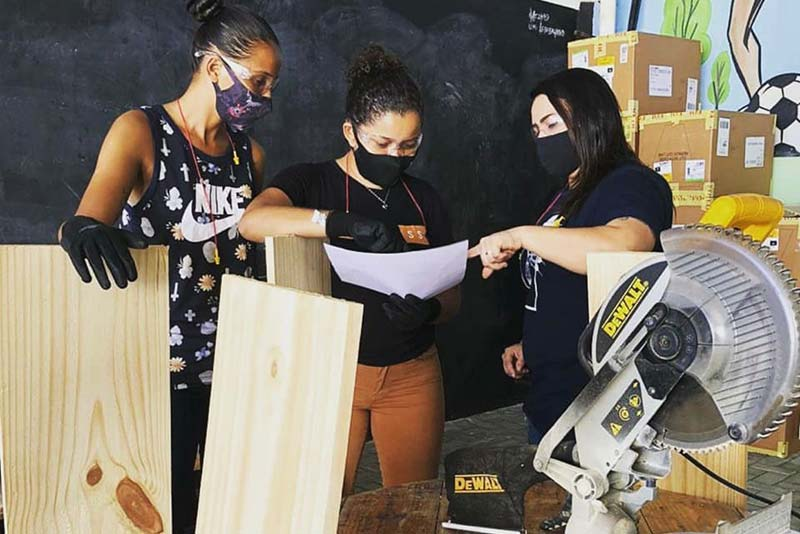
Photo credit: Furniture Pallet
This was the third edition of the acceleration under the Itaú Mulher Empreendedora program, benefiting more than 96 women so far.
“In a world where women represent half the population, gender equality makes economic sense. That is why IFC supports women entrepreneurs in terms of improving their control over finances through better access to training, skills, and knowledge. The aim is to increase their participation in the labor force, shifting conservative social norms and reducing gender gaps in emerging economies,” says Helene Meurisse, IFC Operations Officer, responsible for technical advisory projects for financial institutions.
Back in 2013, Itaú was the first private Brazilian bank to launch a program supporting female entrepreneurship, with technical advisory from IFC.
“The program helped us understand that these women, who have been working for themselves for a long time, need only to improve their technical knowledge to properly target the resources they already have. The journey also showed the impact of financial investment on income, which in many cases benefits other businesses and the community,” says Hebe Valle, Itaú's responsible for this edition of the IME program, and an Inclusive Business and Entrepreneurship analyst.
Most importantly, as Borges, Ercília, and Lopes have proven, with a little bit of support, women entrepreneurs are ready to dream big.
This article was originally published by IFC.
